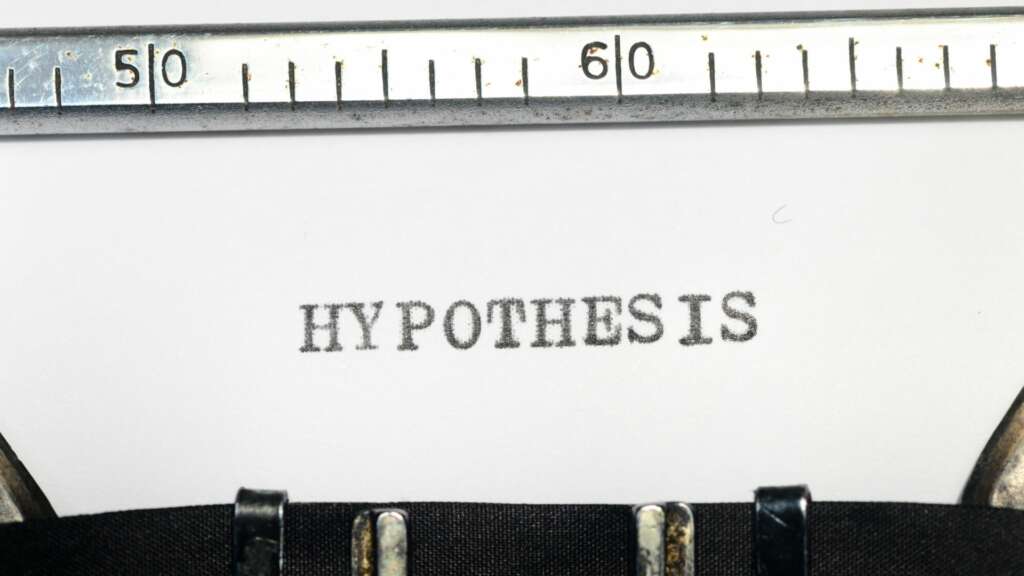
A hypothesis (singular hypothesis) is simply an idea that is given as a basis for a future study. In fact, a hypothesis is not much different than a prediction about a future event. A hypothesis has to be supported by empirical evidence in order for it to become a scientific theory.
Most scientists use the word “hypothesis” as an informal way to refer to an idea, not an actual physical structure that they are testing or trying to prove. The word “hypothesis” was used in physics to indicate an idea that had been proven. It has since been extended to describe ideas about the nature of the universe, the properties of subatomic particles, and the behavior of large-scale systems. Scientific methods require that one can verify a hypothesis before one can claim it to be valid, so a theory becomes a hypothesis once a test has been made.
Many people mistakenly think that a hypothesis is a “fact,” but this is not true. A scientific theory (singular theory) is simply an idea that is supported by empirical evidence. No theory has ever been proven, although many have been falsified. Some scientists use the term “theory” to describe an idea, such as the theory of evolution. Other scientists use the term “hypothesis” to describe a pattern of scientific observations, such as the fact that the earth is round.
There are many different kinds of theories, including a number of types of hypotheses. A scientific theory is a statement about nature. A scientific hypothesis is a statement about something that hasn’t been proven but is based on a large body of information. It is possible to falsify a theory, which means that it can be tested and proved false.
Scientific theories are also referred to as laws of nature. Laws of nature to describe how the natural world works. One of the most common examples of a law of nature is gravity, which describes the relationship between an object’s weight and the gravitational force it exerts on itself. Another example of a law of nature is the law of conservation of energy, which states that energy will always be present unless something is able to change its state or make it lose it.
Scientific theories may also be referred to as axioms. An axiom is a proposition, which is nothing more than a statement about an existing scientific idea. and should not be taken literally.
Scientific theories often undergo repeated tests to ensure that they remain valid. Theories must be testable and falsifiable in order for them to be accepted as true, but they are not subject to the usual tests used by scientists when testing other scientific theories, such as re-evaluation of data or experiments. Even when a scientific theory passes these tests, it may still be subject to revision in light of new discoveries and data obtained in the future.
To summarize, a theory is simply an idea that is not yet understood, but it can be described as being supported by evidence. A scientific hypothesis is an idea that is supported by evidence and may be tested through experiments, without a requirement for re-examination or revision. Scientific theories are only supported by evidence when they are accepted as real and are not considered false.
Scientific theories have been found to be very useful in explaining the universe. Even when they are not supported by empirical evidence, they are generally accepted by scientists because they have been scientifically supported over many years and have been tested and have passed several scientific tests.
Most scientific ideas have not yet been verified. If you believe there is a theory that is supported by enough evidence, then you are likely to be right and there is a good chance that it has been tested and has been proven correct.
Scientific theories are not something that is taught in schools. The concepts of science are not taught in school, because science is a very complex field and even if a theory is accepted, it will be open to re-examination.


